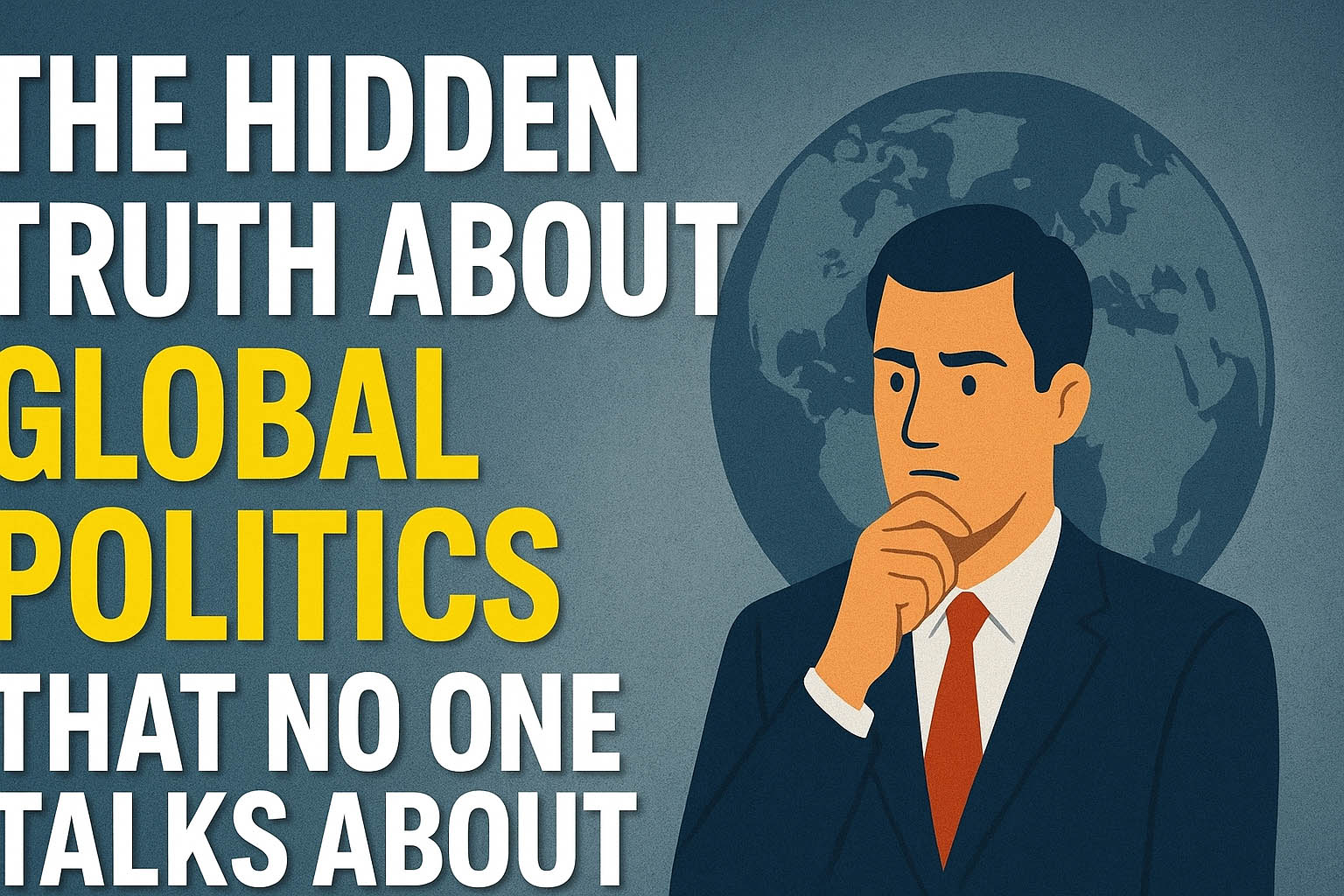When we think about global politics, what comes to mind are leaders shaking hands at international summits, passionate speeches at the United Nations, or headlines about conflicts, alliances, and trade deals. But beneath the surface lies a hidden truth that is rarely acknowledged: global politics is not simply about public decisions and diplomacy—it is about power, control, and influence that often operates away from the public eye. The real story of global politics is not just what is broadcast on television; it is the complex web of interests, secret negotiations, and unseen forces that shape the world we live in.
Power Beyond Borders
One of the hidden aspects of global politics is how power extends beyond borders. Nations do not just act in their own interest through official policies; they often engage in covert operations, intelligence sharing, and secret financial dealings. For example, major powers use their intelligence agencies not only to gather information but also to influence the direction of other countries’ policies. Covert alliances, proxy wars, and backdoor deals are tools that never make it to official press releases but have far-reaching consequences.
The Influence of Corporations
Another hidden truth is the immense role multinational corporations play in shaping international relations. While we often hear about governments negotiating trade agreements, behind the scenes, powerful corporations lobby to secure their own interests. Energy giants, pharmaceutical companies, and tech firms hold more influence over policies than many small or developing nations combined. Their ability to fund campaigns, pressure lawmakers, and manipulate markets gives them a seat at the table where critical decisions are made—decisions that affect global populations.
The Role of Media and Narratives
Global politics is also shaped by narratives—and those narratives are controlled by media. The hidden reality is that what we perceive as international “truth” is often filtered through biased reporting, propaganda, and strategic framing. Nations use media not only to present their stance but also to create global perceptions that align with their political goals. Sometimes, entire wars are justified through carefully designed narratives that obscure the reality on the ground. This manipulation of information has become an invisible weapon in international relations.
The Inequality of Voice
One of the least discussed aspects of global politics is the imbalance of voice. While powerful nations dominate international organizations like the United Nations Security Council, smaller nations often find their voices ignored. The principle of equality among nations exists on paper, but in practice, decision-making power is concentrated in the hands of a few. This imbalance allows dominant powers to shape international law, military interventions, and even humanitarian responses according to their own interests.
The Shadow of Economics
Economics lies at the heart of global politics, yet the hidden truth is that economic leverage is often more powerful than military force. Institutions like the International Monetary Fund (IMF) and the World Bank provide loans to struggling nations, but these loans often come with conditions that reshape entire economies and political systems. These “structural adjustments” may be presented as financial help, but in reality, they serve as tools to align weaker countries with the interests of stronger ones.
Hidden Agendas in Diplomacy
While diplomacy is portrayed as open dialogue and peaceful negotiation, many international agreements are the result of secretive talks, closed-door bargaining, and hidden agendas. Leaders may publicly call for peace while secretly funding conflict to protect their interests. Humanitarian aid may be given with strings attached, and peace treaties may hide compromises that serve long-term strategic goals rather than genuine reconciliation.
Why This Truth Matters
Understanding these hidden truths is essential because global politics directly impacts the lives of everyday people. Wars, sanctions, trade policies, and climate agreements are not just headlines—they affect jobs, fuel prices, security, and freedoms across the globe. The lack of transparency in decision-making means that citizens are often unaware of why their countries pursue certain policies or align with specific allies. Without this awareness, societies remain vulnerable to manipulation and misinformation.
Towards Transparency and Accountability
The path forward requires greater transparency and accountability in global politics. Governments must be pressured by their citizens to disclose negotiations, multinational corporations must be held responsible for their political lobbying, and media must strive to provide unbiased coverage. Technology and social media have begun to expose some hidden realities, but much more is needed to balance the scales of power. Only when ordinary people demand openness will the hidden truths of global politics begin to surface.



